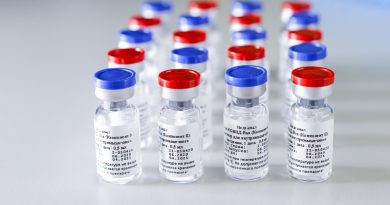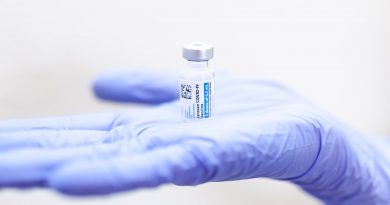BMS boosts cardiovascular pipeline with $13.1 Billion MyoKardia buy
Bristol Myers Squibb is strengthening its cardiovascular pipeline through a $13.1 Billion acquisition of biotech firm MyoKardia.
The $13.1 Billion in cash BMS deal set to close in Q4 of 2020
American pharma giant Bristol Myers Squibb and California-headquartered biotech MyoKardia reported a binding acquisition deal under which Bristol Myers Squibb is going to buy MyoKardia for $13.1 Billion or $225.00 per share in cash. The deal has been overwhelmingly accepted by both the Boards of Directors of Bristol Myers Squibb and MyoKardia and is scheduled to close within the fourth quarter of 2020.
Bristol Myers Squibb is set to gain potential cardiovascular blockbuster mavacamten
MyoKardia is a clinical-stage biopharmaceutical company that discovers and creates specific drugs to combat critical cardiovascular diseases. Bristol Myers Squibb is set to gain mavacamten, a possible first-class cardiovascular drug for the treatment of obstructive hypertrophic cardiomyopathy (HCM), via the purchase.
Giovanni Caforio, M.D., Board Chair and Chief Executive Officer of Bristol Myers Squibb stated:
“The acquisition of MyoKardia further strengthens our portfolio, pipeline and scientific capabilities, and is expected to add a meaningful medium- and long-term growth driver. We are further strengthening our outstanding cardiovascular franchise through the addition of mavacamten, a promising medicine with the potential to address a significant unmet medical need in patients with cardiovascular disease. Our companies share a commitment to innovation and bold science, and our respective strengths will help us realize the value inherent in this portfolio. We have long admired MyoKardia and what they have done to revolutionize cardiovascular treatments through a precision medicine approach. We look forward to welcoming their talented team to our company.”
Treatment of obstructive hypertrophic cardiomyopathy (HCM)
HCM is a chronic progressive heart disease with a high mortality rate and a serious patient impact. A New Drug Application (“NDA”) for mavacamten for the management of symptomatic obstructive HCM – based on data from the EXPLORER-HCM study – is planned to be submitted for approval to the U.S. Food and Drug Administration (“FDA”) in Q1 of 2021. Bristol Myers Squibb aims to investigate the level of efficiency of mavacamten in a range of indications, including non-obstructive HCM, as well as develop MyoKardia’s pipeline of innovative compounds, including two clinical-stage therapeutics: danicamtiv (formerly MYK-491) and MYK-224.
Tassos Gianakakos, Chief Executive Officer of MyoKardia commented:
“MyoKardia was formed eight years ago with the aim of changing the world for people with serious cardiovascular diseases through bold and innovative science. Since then, MyoKardia’s dedicated employees have established an unparalleled pipeline of targeted therapeutics designed to change the course of disease and return the heart to normal function. Bristol Myers Squibb shares our vision for transforming the treatment of cardiovascular disease. They value our team and the potential of our platform and, most importantly, share our unwavering commitment to placing patients at the center of everything we do. Together, our complementary strengths and expanded resources and reach will further accelerate the pace at which we can discover, develop and commercialize our novel medicines for the benefit of people suffering from cardiovascular disease around the world.”
Bristol Myers Squibb expects the transaction, when complete, to have some compelling benefits. The global pharmaceutical giant aims to further strengthen the company’s business outlook with the inclusion of mavacamten, which has a considerable market value in the lead indication, obstructive HCM, and upside in other potential indications, including non-obstructive HCM.
Mavacamten could be a gamechanger for HCM
Mavacamten could be a major long-term growth engine with the urgent unmet medical need in obstructive HCM. In the pivotal Phase 3 EXPLORER-HCM trial, Mavacamten presented clinically meaningful outcomes, met the primary and all secondary endpoints, and displayed substantial improvements in symptoms, functional status, and quality of life by minimizing the obstruction of the blood flow from the heart. This new potential first-class drug, which is scheduled to be submitted to the FDA by the NDA in the Q1 of 2021, might radically affect the direction of the disease.
Boosting the growth of Bristol Myers Squibb’s cardiovascular portfolio
Eliquis ® (apixaban) has been developed by Bristol Myers Squibb as the world’s # 1 oral anticoagulant with a best-in-class profile, powered by leading market execution. Mavacamten would be a trademarked product that fits nicely into the total holdings of Bristol Myers Squibb, considering the experience of the company in the field of cardiovascular disease. Via this purchase, Bristol Myers Squibb acquires the MyoKardia’s clinical engineering talent and capacity in the U.S. West Coast, which will endorse the complete realization of the incentive in obstructive HCM and further to exploit the full potential of mavacamten.
In additional indications. Bristol Myers Squibb will now be better placed to advance the global expansion of the clinical and early-stage pipeline target portfolio of MyoKardia while helping to develop the latest Factor XIa inhibitor program.
A significant financial growth outlook
The transaction is expected to become a substantial medium to long-term growth engine. The non-GAAP earnings per share (EPS) of Bristol Myers Squibb in 2021 and 2022 and the rise starting in 2023 are projected to be minimally reduced. Bristol Myers Squibb reaffirms its current guidance schedule of 2021 non-GAAP EPS. As mentioned below, there is no precise reliable estimable measure of GAAP.
MyoKardia’s stocks up by 59%
MyoKardia’s stocks soared by 59% on Monday, when the announcement was made public. BMY’s stock also rose by 0.8% on the day. Back in May, MyoKardia’s stock skyrocketed by 58% upon the release of the biotech’s positive final-phase data on mavacamten in treating HCM patients. The cardiovascular specialist firm, which went public in 2015, then set a new record when it broke out of a trading pattern at $126.40. On Friday, MYOK’s closing price was $139.60, so there is more than a 60% premium to the purchase price of $225 per share.
Transaction Terms and Financing
Under the terms of the merger agreement, a subsidiary of Bristol Myers Squibb will promptly commence a tender offer to acquire all of the outstanding shares of MyoKardia’s common stock for $225.00 per share in cash. MyoKardia’s Board of Directors unanimously recommends that MyoKardia shareholders tender their shares in the tender offer.
The transaction is subject to customary closing conditions, including the tender of a majority of the outstanding shares of MyoKardia’s common stock and the expiration or termination of the waiting period under the Hart-Scott-Rodino Antitrust Improvements Act of 1976. Following the successful closing of the tender offer, Bristol Myers Squibb will acquire all remaining shares of MyoKardia that are not tendered into the tender offer through a second-step merger at the same price of $225.00 per share. Bristol Myers Squibb expects to finance the acquisition with a combination of cash and debt.
About Hypertrophic Cardiomyopathy
HCM or Hypertrophic cardiomyopathy chronic, progressive usually inherited disease characterized by enlarged heart muscle and dynamic left ventricular outflow tract obstruction, triggering excessive compensatory contractions, blocking the flow into the aorta and causing an aortic murmur. HCM involves debilitating symptoms: chest pain, Shortness of breath, fainting especially by exercise or exertion Sensation of rapid, fluttering or palpitations
HCM affects approximately one in every 500 people and might lead to severe cardiac dysfunction, Arrhythmias,Atrial Fibrillation,Ventricular Fibrillation Sudden Cardiac Arrest
Around 160,000 to 200,000 individuals in the U.S. and EU are diagnosed with symptomatic obstructive HCM, with no existing effective treatment options except minimal symptomatic relief. Patients are generally diagnosed in their 40s or 50s and ongoing care is anticipated. Only about 25 percent of people with obstructive HCM and just about 10 percent of people with non-obstructive HCM are known to have received a diagnosis.
Original Sources:
Disclaimer: Financial data in this article is for information purposes only and shall not constitute trading or investment advice.
Advertisement





